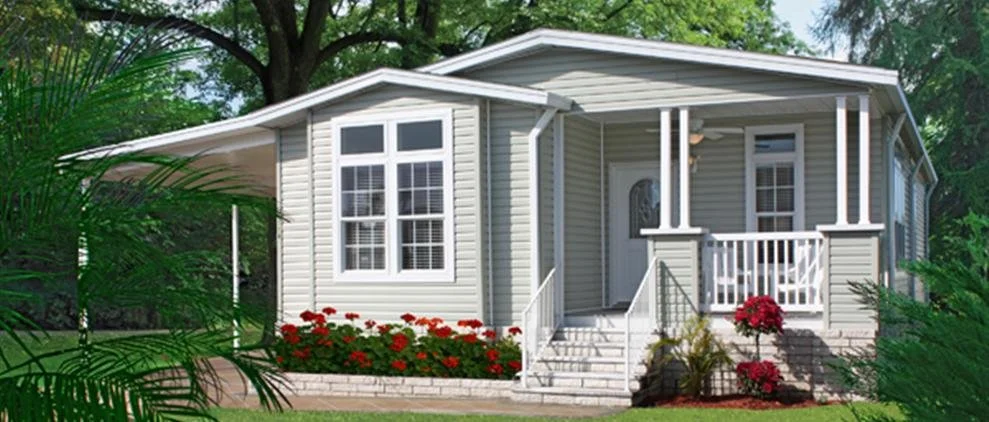
Mobile Home Retrofitting Tampa
Mobile Home Retrofitting Services Near Tampa
Mobile Home Retrofitting Project in Tampa, FL
Tampa Bay Mobile Home Leveling and Anchoring is an accredited company that specializes in providing top-notch mobile home retrofitting services in Tampa, Florida, and the surrounding areas. With our extensive experience and skilled team, we strive to offer comprehensive solutions to Pasco County mobile homeowners, ensuring the stability, safety, and longevity of their mobile homes.
Here are the various mobile home retrofitting services we provide individually to Pasco County, FL mobile homeowners:
Mobile Home Leveling Services Near Tampa
Over time, mobile homes can experience uneven settling, leading to structural imbalances. Our expert technicians assess the foundation and employ advanced techniques to level your mobile home, restoring its stability and preventing further damage.
Mobile Home Anchoring Systems Installation Services Near Tampa
Strong winds and storms can pose a significant threat to mobile homes. We offer professional anchoring system installation to secure your mobile home firmly to the ground, enhancing its resistance against extreme weather conditions and minimizing the risk of displacement or damage.
Skirting Repair and Replacement Services Near Tampa
Skirting is an essential component of mobile homes, providing protection and insulation. We inspect and repair damaged skirting or offer replacement options, ensuring a seamless and functional enclosure for your mobile home.
Mobile Home Re-Leveling and Re-Anchoring Services Near Tampa
If your mobile home has already been leveled or anchored in the past but requires adjustments, we provide re-leveling and re-anchoring services to restore the integrity and stability of your property.
Mobile Home Crawl Space Encapsulation Services Near Tampa
Proper crawl space encapsulation is crucial for moisture control and preventing issues like mold, pests, and structural damage. We offer professional encapsulation services to create a clean, dry, and well-ventilated crawl space environment, promoting the overall health of your mobile home.
Mobile Home Foundation Repair Services Near Tampa
Mobile home foundations can develop cracks, sagging, or other structural issues over time. Our skilled technicians assess the foundation's condition and execute targeted repairs, reinforcing the stability and durability of your mobile home.
Mobile Home Tie-Downs Installation Services Near Tampa
Tie-downs play a vital role in securing mobile homes to their foundations. We install or replace tie-down systems using high-quality materials and techniques, ensuring maximum safety and compliance with local building codes.
Mobile Home Jacking and Shimming Services Near Tampa
Mobile homes may require jacking and shimming to address sagging or uneven flooring. Our team uses professional equipment and techniques to lift the mobile home and place shims strategically, ensuring a level and solid foundation.
We understand the unique challenges and requirements that mobile homeowners face everyday from amassing so much experience over time. Our commitment to excellence, attention to detail, and customer satisfaction make us the ideal choice for all your mobile home retrofitting needs.
The Mobile Home Retrofitting Process Step By Step
Step 1: Initial Consultation and Assessment:
The mobile home retrofitting process typically starts with an initial consultation and assessment. The company's representative visits the customer's mobile home to assess its current condition, identify potential hazards, and discuss the customer's needs and budget.
Step 2: Design and Proposal:
Based on the assessment, the company's team of engineers and designers creates a custom plan for the retrofitting project. The plan may include modifications to the foundation, roofing, walls, windows, doors, plumbing, electrical, and HVAC systems to improve energy efficiency, safety, and accessibility. The company then presents a detailed proposal to the customer, including cost estimates, timelines, and warranties.
Step 3: Permits and Inspections:
Before starting the retrofitting work, the company obtains all necessary permits from the local building department and schedules inspections to ensure compliance with building codes and safety standards. The customer may also need to obtain permits for any changes to the land or utilities.
Step 4: Preparatory Work:
The retrofitting process typically involves some preparatory work, such as removing and disposing of old materials, cleaning the site, and securing the area. The company may also need to make temporary arrangements for the customer's living space during the retrofitting, such as renting a temporary mobile home or providing a schedule for the customer to access the site safely.
Step 5: Retrofitting and Installation:
The company's team of skilled technicians and contractors then begins the retrofitting work according to the plan and proposal. They may use a variety of tools, equipment, and materials to make the necessary changes, including framing, insulation, drywall, roofing, electrical wiring, plumbing pipes, and HVAC ducts. The company may also install new features, such as skylights, solar panels, or storm shutters, depending on the customer's preferences.
Step 6: Testing and Quality Assurance:
Once the retrofitting work is complete, the company tests and verifies the quality of the work, including the performance of the systems, the durability of the materials, and the safety of the structure. The company may also conduct an energy audit to determine the efficiency of the new systems and recommend additional measures to save energy and reduce costs.
Step 7: Final Inspection and Clean-up:
Before the customer moves back in, the company arranges for a final inspection by the building department to ensure that the retrofitting meets all requirements. The company also cleans up the site, removes all debris, and restores the landscaping as much as possible.
Step 8: Follow-up and Maintenance:
After the retrofitting project is complete, the company typically provides the customer with a warranty and maintenance plan to ensure the ongoing performance and safety of the mobile home. The company may also offer follow-up services, such as customer support, training, or upgrades, to meet the changing needs of the customer.
